Prosy Delacruz, one of the women writers featured in the forthcoming Pinay Gathering at Philippine Expressions Bookshop, wrote the following piece, which was published in Asian Journal. The Pinay Gathering will be on Saturday, March 17, 2018, 3-6 p.m. at 479 W. Sixth Street, Suite 105, San Pedro, CA 90731, RSVP 1-310-514-9139
~~~
Women authors: Writing is the intersectional expression of their multidimensional stories
By Prosy Abarquez Delacruz, J.D.
Published: March 10, 2018
Part I of II
“I think writing somehow reduces natural selfishness. That we can do without many things – do not have to own what we enjoy—is quite liberating. It allows us to share more, to be concerned not only with ourselves. Real writers are not self-centered. They make available to all the significance they achieve. Not after sensation through falsified feelings, they try to preserve what might otherwise be lost of people’s lives, and the life of their country. They are too deeply committed to literature and everything implicated in it, that they do not pass on ideologies but give readers something to think about, helping them to arrive at the truth about themselves. Our writings are where we live on, until mortal time ends because at its heart is refinement beyond manners, and integrity.” – Linda Casper, “The Writer’s Wives,” 2000.
“I think writing somehow reduces natural selfishness. That we can do without many things – do not have to own what we enjoy—is quite liberating. It allows us to share more, to be concerned not only with ourselves. Real writers are not self-centered. They make available to all the significance they achieve. Not after sensation through falsified feelings, they try to preserve what might otherwise be lost of people’s lives, and the life of their country. They are too deeply committed to literature and everything implicated in it, that they do not pass on ideologies but give readers something to think about, helping them to arrive at the truth about themselves. Our writings are where we live on, until mortal time ends because at its heart is refinement beyond manners, and integrity.” – Linda Casper, “The Writer’s Wives,” 2000.
“Stories matter. Many stories matter. Stories have been used to dispossess and to malign, but stories can also be used to empower and to humanize. Stories can break the dignity of a people, but stories can also repair that broken dignity.” – Chimamanda Ngozi Adichie.
Linda Nietes, owner of Philippine Expressions Bookshop in San Pedro, California, organized “Pinay Gathering 2018” to honor Cecilia Manguerra–Brainard, this writer, Marianne Villanueva, Irene Suico Soriano, Angela Narciso Torres and Tessie Jayme. On Saturday, March 17, these authors will read from their finished books, including a novel, compilation of life stories, memoir-like poetry, and a trilogy novel on World War II, during an hour-long panel.
Can this be done when usually three writers are in a panel of 41 minutes, one after the other, on television, with no audience interaction?
At the Filipino-American International Book Festival, held from October 6-8, 2017, I observed Brainard adeptly moderate two Hot Off The Press Panels, with 19 authors.
In one panel, 11 authors shared a communication space of an hour and 20 minutes.
Can you imagine being one of them, with barely five minutes, for an introduction and an excerpt? Your nerves alone would silence your tongue, but not all.
Brainard read from her literary-novel, “The Newspaper Widow,” which the foreword reviews evaluated as “the novel [which] is full and complex, overflowing with textured, fully realized characters who drive the story on every page.” It left many in the audience wanting for more.
Writing as meeting the moment
The novel started out as a murder-mystery, a “for fun” activity for her, Brainard shared. However, she added, “the work balked, and I had to conform to its demands. The first title of my third novel was ‘Dead Priest in the Creek’ until I realized that the story wasn’t really about the murdered priest, but about the widow, Ines Maceda (inspired by my great-grandmother), who had to fight to get her son out of jail, and whose relationships with people-new and people-from-her-past are all precious parts of the novel.“
~~
I intended this piece to be a spotlight on these women, yet it took a different direction, further than the accolades and resume accomplishments, and more on the authors’ motivations and signature features of some in their writings.
For example, Brainard’s works have been translated into Finnish and Turkish, and she has lectured on worldwide literary arts at UCLA, USC, University of Connecticut, University of the Philippines, PEN, Beyond Baroque, and Shakespeare and Company in Paris.
You get a sense that she is really into her craft while she commands respect beyond her personal literary world.
Angela Narciso Torres is a graduate of the Warren Wilson Master of Fine Arts Program for Writers and Harvard Graduate School of Education with various fellowships from Bread Loaf Writers’ Conference, Illinois Arts Council and Ragdale Foundation who serves as a reader for New England Review and poetry editor for RHINO.
Writing process and embracing yourself as an outsider
When Lin-Manuel Miranda was interviewed by Oprah at the Apollo, Oprah surmised that what goes on inside his head is unlike most of us. Miranda smiled. He has always felt like an outsider, but he has embraced that as it gives him a unique outsider’s perspective to look at situations.
He then declared that writing is meeting the moment. Indeed, there are days when the words flow into one’s hands into the keyboard and the meeting is meant to be, glorious!
Other days, I could not meet that moment and I have to restart, like rebooting one’s computer.
As a teacher of creative writing, Brainard distinguished the role of the left brain (logic) from the right brain (creativity).
“What is more important than a disciplined structure is allowing one’s creative side to ‘flow.’ Free-flow writing helps; using prompts helps; not being critical helps. One should try not to ‘think’ so hard when writing because ‘thinking’ is a left-brain process. One should try not to correct one’s work as one is writing, but just continue writing even if there are mistakes. One needs to ‘get it out.’ Once a draft is out, then the writer has something to work with. It’s like producing a lump of clay that one can then mold. In other words, one’s draft does not necessarily produce a complete work. Sometimes the drafts wither and die, but sometimes the writer will find kernels of really good material in there to develop into a good story,” she generously shared her insights about the creative process.
”I get fascinated with a character whom I will bat around in my head. The character starts to become alive in my head. I will explore all aspects of that character – his/her physical looks, family background, loves/likes/hates, his/her conflicts, etc. In my head I’m always asking: What is your story? I search for what makes this character unique and different. Setting is important to me, so I will always ask where the character lives and what time frame he/she lives in,” Brainard continued.
It reminded me of what NVM Gonzalez said, “Write like a lover.” Then, after, one must be a serial killer to edit the unnecessary words. Another editor told me about his rule, “Each word must carry its weight.” I once heard a Jesuit priest say, “If you are confused, you are probably thinking hard.”
This state of mind is not unlike what novelists go through.
“I have learned to follow the lead of my characters rather than impose what I think the story should be—(this is difficult to do because we writers think we are in charge,“ Brainard added.
She is illustrating that the more free-flowing one allows her right brain to flow, without editing at first, one can get to the finish line of creative work products. Then, allow the left brain to exercise its authority on logical editing.
Writing is an intersectional expression
“Blood Orange” is Angela Narciso Torres’ first book of poetic memoirs. It won the 2013 Willow Books Literature Award and her works have been featured in Nimrod, Spoon River Poetry Review (literary journal of poetry) Jet Fuel Review and Water Stone Review (national literary annual published by the Creative Writing Programs at Hamline University in St. Paul, Minnesota.
From a multi-dimensional perspective, Torres describes her book as “most of the poems in Blood Orange make up a sort of poetic memoir of my growing up years in Manila and my eventual migration to America as an adult. So there are poems about family and childhood, but also about motherhood and the intersections of my various roles as a woman and a Filipina writer living in America.”
The roots of her multidimensional perspective come from “having grown up in Manila then living most of my adult life in the U.S., automatically there are these two perspectives, not unlike those 3D glasses you wear at the movies—one side red, the other blue, which allows you to see three-dimensionally. So as long as I’ve been writing, I’ve always seen the world through both Filipina and American lenses—further refined, of course, by everything else that colors and informs who I am: e.g. being a woman, mother, daughter, my political and religious beliefs, aesthetic sensibilities, etc.”
Most of us are multi-dimensional human beings with more than one story in our lives.
In describing Irene Suico Soriano, she emphasized her curatorial background. She has founded “Wrestling Tigers: Asian Pacific American Writers Speak” at the Japanese American National Museum and in the ‘90s, was the literary curator for the Festival of Philippines Arts and Culture (FPAC).
Having been featured by the Los Angeles Times for her participation in the groundbreaking National Endowment of the Arts-funded “World Beyond Poetry Festival” — featuring over 100+ poets from LA’s diverse communities — you get a sense she has been letting her right brain direct much of her life.
She creates poems because she believes that “as educators, healers, artists, human rights and nonhuman animal activists, we reclaim spaces, battle erasure, create pleasures and render the publishing, dissemination, and reading of poetry as socially engaged practices that keep the communities we live and work in, aware and involved. We situate our works in intersectional and feminist social spaces where conversations about race, gender, class, ability, ethnicity and identities are deemed crucial to our survival and our well-being.”
But she is also a dog lover and does a lot of rescue work of abandoned animals.
Erin Entrada Kelly, a Filipina-American novelist recently won the Newberry Medal — the most distinguished award given to the author of the finest children’s literature in the world — for her work, “Hello Universe,” (2017) intended for middle school children.
Publishers Weekly describes an element of her work as: “Another signature feature of Kelly’s work is the exploration of Filipino culture, which she writes from personal experience as a Filipina-American.”
“When I was a kid there weren’t many books with Asians and there weren’t any that I can remember reading with Filipinos,” Kelly said in the feature. “It’s incredible to know that my book provides an opportunity for more people to read about a Filipino family, the words they use, how they interact, all that stuff.”
May we write more stories to humanize us all as to our complexities as wholesome human beings.
* * *
Prosy Abarquez-Delacruz, J.D. writes a weekly column for Asian Journal, called “Rhizomes.” She has been writing for AJ Press for 10 years. She also contributes to Balikbayan Magazine. Her training and experiences are in science, food technology, law and community volunteerism for 4 decades. She holds a B.S. degree from the University of the Philippines, a law degree from Whittier College School of Law in California and a certificate on 21st Century Leadership from Harvard’s Kennedy School of Government. She has been a participant in NVM Writing Workshops taught by Prof. Peter Bacho for 4 years and Prof. Russell Leong. She has travelled to France, Holland, Belgium, Japan, Costa Rica, Mexico and over 22 national parks in the US, in her pursuit of love for nature and the arts.
Tags: Philippine, literature, books, writers, poets, authors, Filipino, Pinoy, Pinay, FilAm








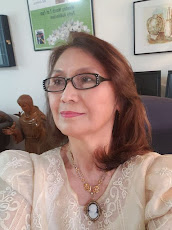

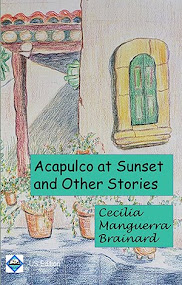



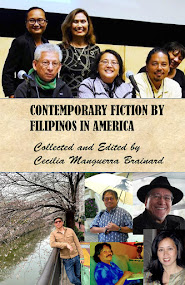
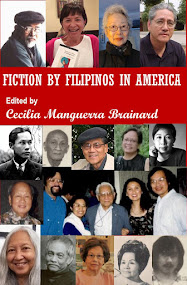



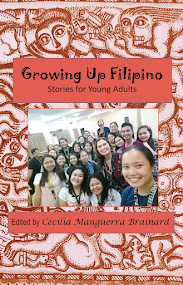
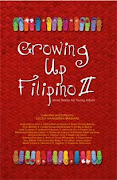


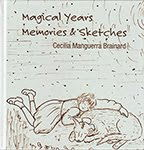


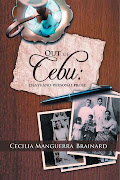



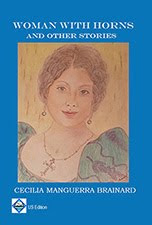

No comments:
Post a Comment